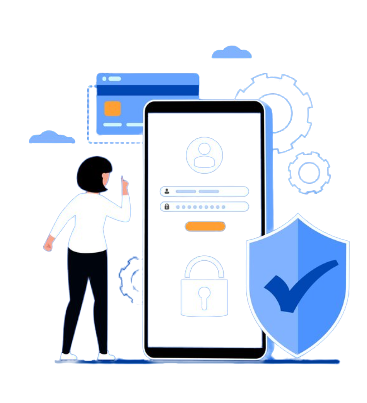In an age where data breaches and privacy violations are a growing concern, building privacy-focused mobile apps is both a responsibility and an opportunity for developers. By understanding user privacy concerns, implementing robust security measures, and fostering transparent communication, developers can create apps that not only protect user data but also foster trust and loyalty.
In an era of data breaches and growing concerns over digital privacy, building mobile apps that prioritize data protection and user trust is more critical than ever. Users are becoming increasingly cautious about sharing their personal information and are seeking apps that respect their privacy. In this blog post, we will delve into the importance of creating privacy-focused mobile apps, explore the challenges developers face, and provide insights into best practices for building apps that safeguard user data while fostering trust.
The Growing Need for Privacy-Focused Mobile Apps:
With the proliferation of mobile apps and the increasing amount of personal data being collected, users are demanding greater transparency and control over their information. We’ll discuss the implications of recent data privacy regulations and how they have elevated the importance of building apps that prioritize user privacy. Addressing these concerns is not only a legal requirement but also a strategic move to gain user trust.
Understanding User Privacy Concerns:
To build privacy-focused mobile apps, developers need to understand the specific privacy concerns of their target audience. We’ll explore common user apprehensions related to data collection, sharing, and storage. By empathizing with user perspectives, developers can design apps that address these concerns and provide a secure digital environment.

Implementing Strong Data Encryption:
Data breaches are a major threat to user privacy, and robust encryption is essential to protect sensitive information. We’ll discuss the significance of end-to-end encryption for data at rest and in transit. By implementing encryption techniques, developers can ensure that user data remains confidential and inaccessible to unauthorized parties.
Transparent Data Collection and Consent:
App users appreciate transparency when it comes to data collection and usage. We’ll highlight the importance of clear and concise privacy policies and obtaining informed consent from users before collecting their data. By providing transparent information, developers can empower users to make informed decisions about sharing their information.
Minimizing Data Collection and Retention:
Privacy-focused apps strive to collect only the necessary data and retain it for the shortest duration possible. We’ll discuss the practice of data minimization and the benefits of limiting the types of data collected and the duration of storage. By reducing the amount of data stored, developers can mitigate potential risks associated with data breaches.
Secure Authentication and Authorization:
Securing user accounts through strong authentication and authorization mechanisms is crucial for protecting user privacy. We’ll explore multi-factor authentication, biometric verification, and other secure login methods that enhance the app’s security. By implementing robust user authentication, developers can prevent unauthorized access to user accounts.
Regular Security Audits and Updates:
Building privacy-focused apps is an ongoing process that requires continuous vigilance. We’ll discuss the importance of conducting regular security audits and promptly addressing vulnerabilities. By staying proactive and responsive, developers can ensure that their apps remain resilient against evolving security threats.
Providing User Control and Data Deletion:
Privacy-focused apps empower users to have control over their data. We’ll highlight the significance of providing users with the option to delete their data and accounts. By respecting user preferences, developers can establish a positive user experience and build trust.
Educating Users about Privacy Features:
A well-informed user is more likely to engage with an app that respects their privacy. We’ll explore the importance of educating users about the privacy features of the app, such as opt-out settings and data-sharing controls. By promoting user awareness, developers can foster a sense of empowerment and confidence.
Nurturing User Trust and Loyalty:
Building privacy-focused mobile apps goes beyond compliance – it’s about building trust and fostering user loyalty. We’ll discuss how prioritizing user privacy and data protection can lead to positive user reviews, word-of-mouth recommendations, and long-term app success. By consistently delivering on promises of privacy, developers can create lasting relationships with their users.
Conclusion:
In an age where data breaches and privacy violations are a growing concern, building privacy-focused mobile apps with the help of Tanbits‘ mobile app development services is both a responsibility and an opportunity for developers. By understanding user privacy concerns, implementing robust security measures, and fostering transparent communication, developers can create apps that not only protect user data but also foster trust and loyalty. As the mobile app landscape evolves, let us prioritize privacy and user trust to build a safer and more secure digital future.
BACK










